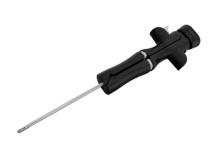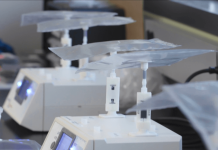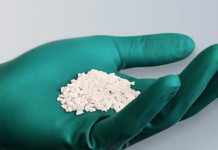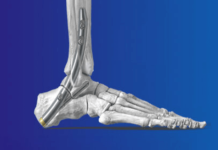UK-based Naitive Technologies has gained 510(k) clearance from the US Food and Drug Administration (FDA) for OsteoSight, an artificial intelligence (AI)-powered software for bone mineral density (BMD) evaluation.
Loss of BMD is the underlying cause of osteoporosis. However, the condition, which results in weaker, thinner bones that are more susceptible to fracture over time, is difficult to immediately recognise and take interventional steps on.
Research indicates that 70% of patients with low BMD are undiagnosed, often until a fracture occurs. Naitive’s AI technology is designed to mimic the gold standard test for detecting osteoporosis, a Dual-energy X-ray absorptiometry (DEXA) scan, using only standard X-rays.
Related: inTRAvent Medical wins FDA clearance for SOLOPASS 2.0 navigation system
Designed to fit into existing clinical pathways in cases where individuals are receiving X-rays for other reasons, the Cambridge, UK-based company’s OsteoSight is indicated for hip or pelvis evaluation, two common regions affected by low BMD, in patients 50 years and above.
OsteoSight subsequently generates reports to highlight a patient’s risk for low BMD. Upon identifying patients with low BMD, a physician may take interventional steps to curtail a patient’s risk of developing osteoporosis, including the prescription of medications such as bisphosphonates to slow bone breakdown, or parathyroid hormone (PTH) analogs to stimulate new bone formation.
Commenting on the FDA clearance, Naitive’s CEO Dr Will Briggs said: “It reflects the dedication of our team and validates the urgency of the problem we are solving. Millions of patients live with undetected osteoporosis, and orthopaedic practices are uniquely positioned to change that. With this milestone, Naitive can now deliver real impact to orthopaedic practices and their patients and lay the foundation for a broader platform in proactive bone health.”
With AI in healthcare set to reach a $19bn valuation by 2027, as per GlobalData forecasts, the clearance of Naitive’s OsteoSight is the latest example of the particularly pronounced impact AI is having on the radiology space. In mitigating the projected global shortfall of radiologists, beyond its diagnostic provision, the technology is serving to streamline processes and result in significant time-savings for practitioners.
OsteoSight is currently under evaluation at the Royal National Orthopaedic Hospital (RNOH) UK National Health Service (NHS) Trust. In process since late 2023, the validation of the tool in a real-world clinical setting is intended to support its wider roll-out across the NHS.




